"Bridging the gap between research, policies and practice – Continuing the discussion"
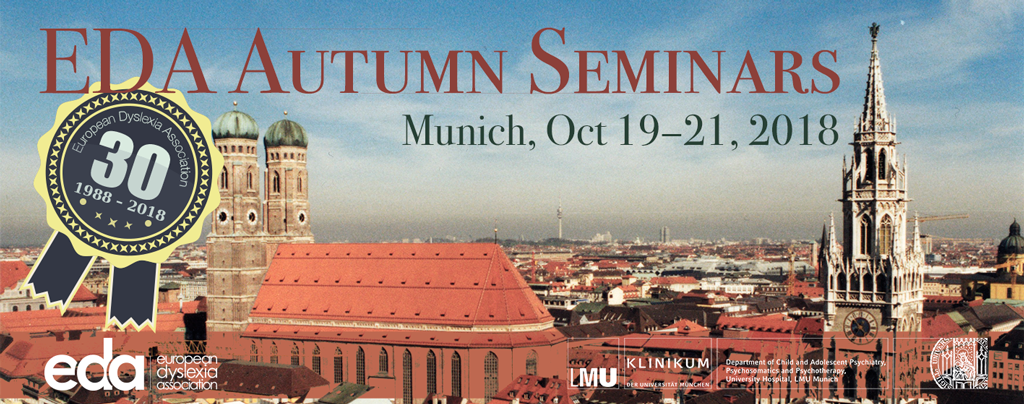
Please note: This is a PAST event and information here is for your reference only.
The European Dyslexia Association, in cooperation with Ludwig-Maximilians-Universität München, held the European Dyslexia Autumn Seminar in Munich, Germany from Friday 19th to Sunday 21th of October 2018.
The conference featured presentations on best practice, policy and science regarding dyslexia (reading and/or spelling disorder) and dyscalculia as well as opportunities for people to meet and network.
Programme and abstracts
View the full programme and poster sessions
Abstracts for plenary lectures
Keynote speakers
(In order of appearance)
Professor Bertram Müller-Myhsok
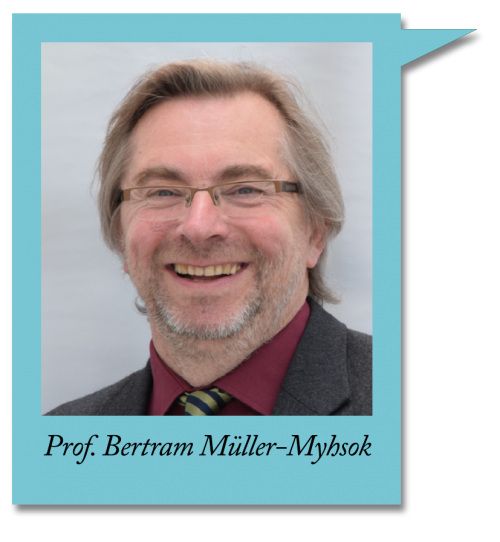 Prof. Bertram Müller-Myhsok is an independent group leader for statistical genetics at the Max Planck Institute of Psychiatry, holds an adjunct professorship for human genetics at the Technical University of Munich and also a part time Chair of Statistical Genetics at the University of Liverpool, UK.
Prof. Bertram Müller-Myhsok is an independent group leader for statistical genetics at the Max Planck Institute of Psychiatry, holds an adjunct professorship for human genetics at the Technical University of Munich and also a part time Chair of Statistical Genetics at the University of Liverpool, UK.
A fully trained human geneticist, he has been working in the field of quantitative analysis for 30 years and has strong expertise in statistical genetics, machine learning, and in development and distribution of efficient software for -omics analysis. Among others, he and his group developed the software packages GLIDE, EPIBLASTER, EPIGPUHSIC, and SimPhe to support epistasis analyses.
Bertram Müller-Myhsok was co-PI of the EU funded ITN Machine Learning for Personalized Medicine and has co-organized the 2016 and 2017 workshops on Deep Learning for Precision Medicine at ECML-PKDDC and the Big Data Workshops 2016/2017/2018 at the European Society of Human Genetics meeting. BMM authored 303 publications, 38 as primary author.
Professor Charles Hulme
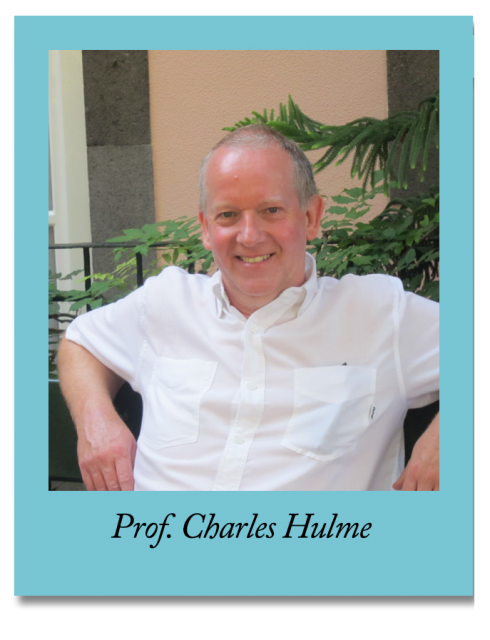
Professor of Psychology and Education | University of Oxford William Golding Senior Research Fellow | Brasenose College Department of Education, University of Oxford, 15 Norham Gardens, Oxford, OX2 6PY Tel: 01865 284096 Email: charles.hulme@education.ox.ac.uk Website: http://www.education.ox.ac.uk/about-us/directory/professor-charles-hulme/
Charles Hulme is Professor of Psychology and Education at the University of Oxford and is a William Golding Senior Research Fellow at Brasenose College, Oxford. Charles has broad research interests in reading, language and memory processes and their development and is an expert on randomized controlled trials in Education. Publications include a number of assessment materials including the York Assessment of Reading for Comprehension (2009), the Phonological Abilities Test (1997), Sound Linkage (2014) and The Test of Basic Arithmetic and Numeracy Skills (2015) as well as several books dealing with various aspects of reading development. He is a former Editor-in-Chief of the journal ‘Scientific Studies of Reading’ (2007-2009) and is currently a Senior Editor of the Association of Psychological Science’s flagship journal, Psychological Science. In 2009 he published “Developmental disorders of language, learning and cognition” (Wiley-Blackwell; co-authored with Maggie Snowling). He holds an honorary doctorate from the University of Oslo (2014) and is a member of Academia Europea and a Fellow of the Academy of Social Sciences. He received the Feitelson Research Award from the International Reading Association (1998) and the Marion Welchman International Award for Contributions to the study of Dyslexia from the British Dyslexia Association (2016). He was elected a Fellow of the British Academy in 2017.
Professor Arnold Wilkins
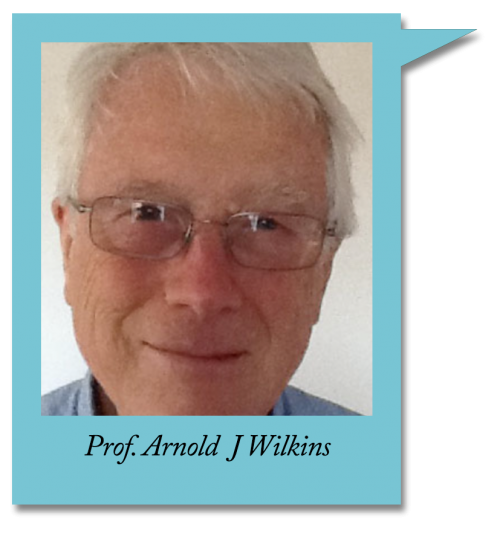
Department of Psychology, University of Essex
ORCID iD https://orcid.org/0000-0002-9322-0461
Arnold Wilkins is Emeritus Professor at the University of Essex. He obtained his PhD for work on semantic memory (with Alan Baddeley) and he then spent two years at the Montreal Neurological Institute with Brenda Milner. It was while he was there that his lifelong interest in photosensitive epilepsy began. When he moved to Cambridge to work at the MRC Applied Psychology Unit this interest broadened into a study of the visual precipitation of discomfort.
During his 22 years in Cambridge he showed that fluorescent lighting was responsible for headaches and he developed the Rate of Reading Test, a cross between an optometrists letter chart and a conventional reading test. He also developed a system for precision ophthalmic tinting that is now in widespread use within optometry. When he moved to a chair at Essex University he continued to develop the system. The fourth generation of the Intuitive Colorimeter was launched this year.
Professor Fumiko Hoeft

Professor of Psychiatry & Weill Institute for Neurosciences, University of California San Francisco (UCSF), CA USA
Dr. Fumiko Hoeft is Professor of Psychiatry & Weill Institute for Neurosciences at University of California San Francisco (UCSF) in California. She is Director of UCSF Hoeft Laboratory for Developmental Cognitive Neuroscience laboratory (brainLENS.org), Executive Director of UC6-Stanford Multi-University Precision Learning Center (PrecL.org), and Deputy Director of UCSF Dyslexia Center (dyslexia.ucsf.edu). She is also a Research Scientist at Haskins Laboratories, Co-Director of Haskins Global L2 Innovation Hub, and Adjunct Faculty of Psychiatry at Keio University School of Medicine in Tokyo, Japan.
Hoeft’s current research program focuses on the neurobiological mechanisms underlying individual differences in brain maturational processes, and typical and atypical skill acquisition such as reading and dyslexia. Her program also focuses on intrinsic and extrinsic, moderating and mediating factors such as biological variability, prenatal environment, multilingual exposure and motivation. Hoeft received research training at Harvard, Caltech and Stanford. Recent honors include the 2014 Norman Geschwind Memorial Lectureship from the International Dyslexia Association (IDA), 2015 Transforming Education through Neuroscience from Learning & the Brain Foundation, and 2017 Multicampus Research Programs and Initiatives Award from UC Office of the President. She has published over 130 articles including peer-reviewed publications in Proceedings of the National Academy of Sciences (PNAS), Current Biology, Journal of Neuroscience, Trends in Cognitive Sciences, and Trends in Neuroscience. Hoeft has delivered over 180 lectures including remarks/keynotes at the White House. Her work has been covered in media such as The New York Times, NPR, CNN, the New Yorker and Scientific American.
Anny Cooreman
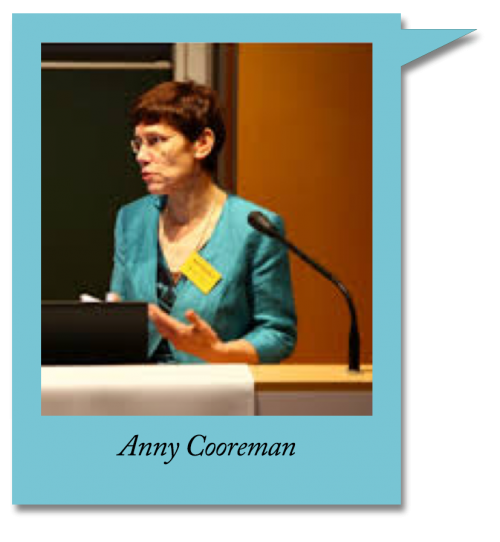 Founder Eureka Leuven (Belgium), centre of education, support & research for gifted pupils with dyslexia , dyscalculia and ADD. Master Orhtopedagogiek Univ. Leuven, Master of Architecture of Peacebuilding Univ. Leuven
Founder Eureka Leuven (Belgium), centre of education, support & research for gifted pupils with dyslexia , dyscalculia and ADD. Master Orhtopedagogiek Univ. Leuven, Master of Architecture of Peacebuilding Univ. Leuven
Social Dinner
The social dinner is sold out!
On Friday October 19 we have the pleasure to offer you our social dinner. Drinks are not included!
We will meet at 7.30PM at Museums-Stüberl which is an Octoberfest museum and restaurant in the heart of Munich.
Menu
Starters
On a wooden plate you will be served homemade Obazda (special Bavarian cheese), cream cheese and sausage, in addition: radish and red garden radish, pretzels and bread.
Main dishes
Choose between the following four dishes:
- Duck and roasted pork in a pan, with red cabbage and dumplings, bavarian coleslaw and sauce.
- Roast pork and veal cream roast in a pan, with dumplings, butter spaetzle, bavarian coleslaw and corresponding sauces
- Vegetarian Curry from seasonal vegetable.
- Homemade cheese spaetzle with fried onions
Dessert
Mix from homemade Kaiserschmarrn with apple apricot compote and our homemade white and brown chocolate mousse.

